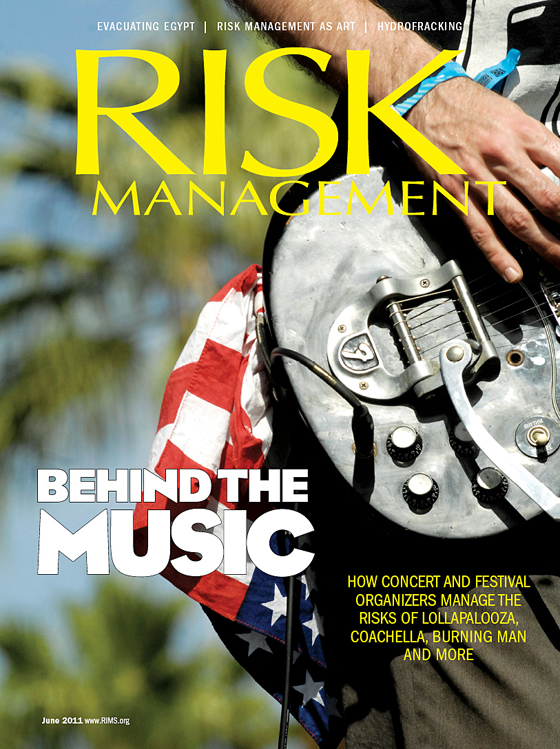Faithful readers: the June issue of Risk Management magazine is now online. The cover story focuses on event risk management — more specifically, how music festival promoters and organizers juggle the dizzying array of risks to crowd, performers and employees during multi-day festivals. Other features explore the risks of hydrofracking and how to insure against them, how to deal with employee evacuations during political uprisings abroad and the intrinsic beauty of risk management.
Our columns explore topics such as data security in the age of WikiLeaks, the risks of China’s clean tech revolution, significant moments in workplace safety and the 10 worst locations for storm surge.
If you enjoy what you seen online, you can subscribe to the print edition to enjoy even more content.
Please let us know what you think in the comments below. And stay tuned to the blog for even more coverage in the future. Lastly, you can follow the magazine on Twitter, “like” us on Facebook and join our LinkedIn group.










